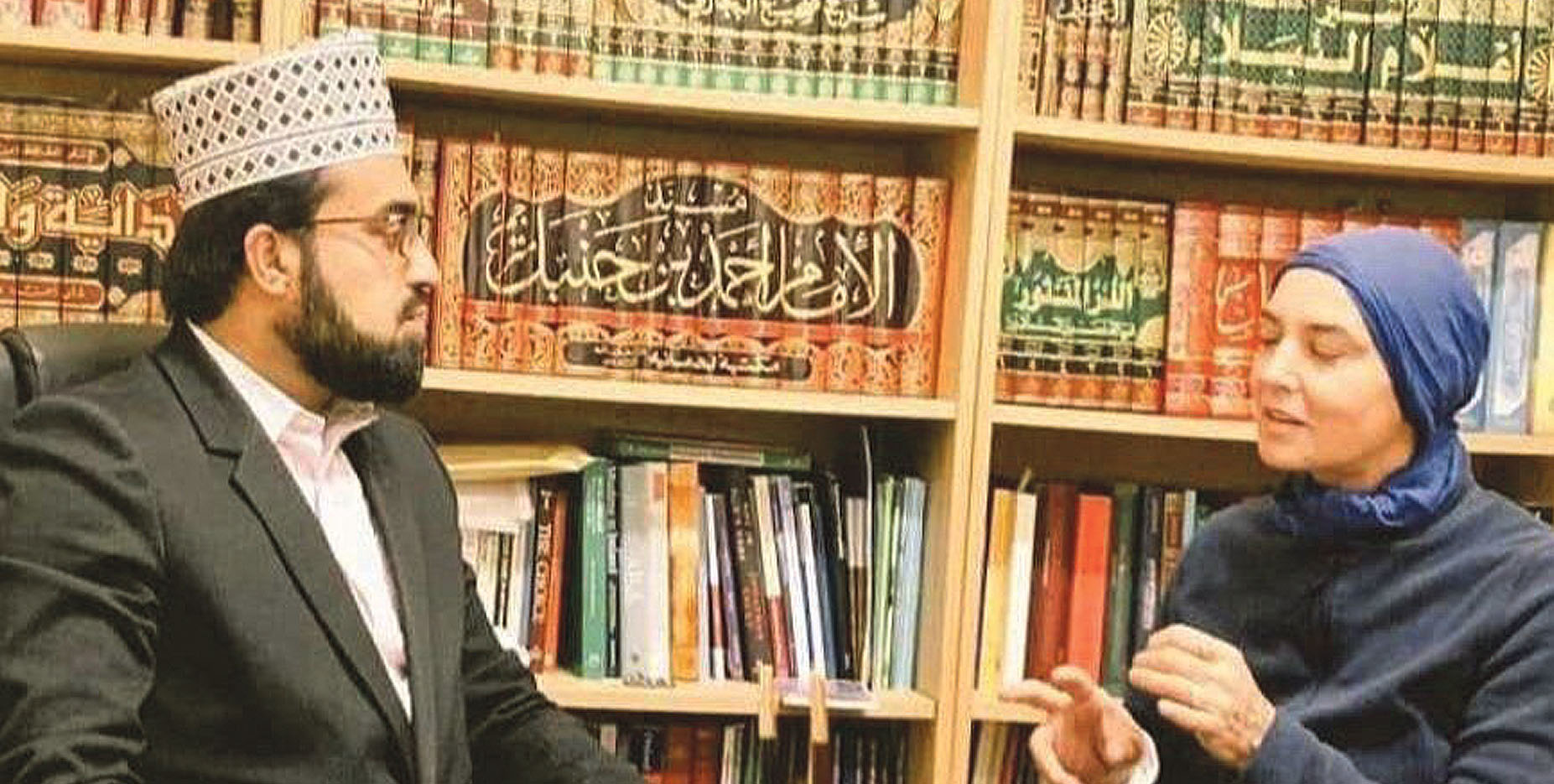
Shuhada’ Sadaqat; December 8, 1966 – July 26, 2023
Throughout her life, Sinéad O’Connor, later known as Shuhada’ Sadaqat, strove to break down boundaries and prejudices. Outside of her illustrious music career, Sinéad went through life questioning the world around her and standing up for what she believed was right.
From the victims of the Catholic Church to condemning an Israeli far-right group for threatening to kill her, Sinéad viewed herself as a protest singer with a voice that demanded to be heard.
Born in 1966 to John and Marie O’Connor, Sinéad had an extremely traumatic childhood. The abuse and neglect that she suffered had a profound impact on her mental health, especially later in life, when she spent six years in a psychiatric facility, which she fondly nicknamed “my second home”.
Despite this, Sinéad went on to become one of the most famous figures in the music industry, changing millions of lives through her emotional and heart-wrenching ballads.
At 24 years old, her worldwide top single “Nothing Compares to You”, earned Sinéad three Grammy nominations at the Billboard Music Awards. In 1991, she was nominated Artist of the Year by Rolling Stone magazine and earned an award for Classic Irish Album at the RTÉ Choice Music Awards earlier this year.
In 1992, Sinéad became a household name when she tore up a photograph of Pope John Paul II on Saturday Night Live in an act of protest against child sexual abuse in the Catholic Church. Her actions resulted in her being banned for life by US broadcaster NBC and sparked protests, which saw copies of her records destroyed in New York’s Times Square.
O’Connor, who married four times, was unofficially ordained a priest in the Latin Tridentine church in 1999. Despite everything, her faith was extremely important to her. When asked if she’d been ordained to stick two fingers up at the Catholic hierarchy. “No,” she said, “I didn’t do it to cause offence. It was just something private between me and the Holy Spirit.”
In 1997, Sinéad wrote a letter to Itamar Ben Gvir, now Israel’s far-right national security minister, condemning him and his group for threatening to kill her.
This incident took place only weeks after O’Connor was forced to cancel a concert in Jerusalem in June organised by Israeli and Palestinian women to promote the idea of shared capital. Ben Gvir appeared on Israeli radio after the cancellation. O’Connor said in an open letter that he had “gloated” about his “‘success’ in preventing my appearance”.
Even before the incident in 1997, Sinéad was a supporter of the Palestinian cause and had been known to fly the Palestinian flag at her live concerts. She played twice in the Israeli city of Caesarea in 1995.
O’Connor was quoted as saying, “Let’s just say that, on a human level, nobody with any sanity, including myself, would have anything but sympathy for the Palestinian plight. There’s not a sane person on earth who in any way sanctions what the Israeli authorities are doing.”
From a young age, Sinéad regarded herself as a natural theologian, and exploring various faiths and reading religious scripture became her pastime. The singer announced that she had converted to Islam in 2018 and changed her name to Shuhada Sadaqat, though she continued to perform under the name Sinéad O’Connor.
In an interview, she said, “I started studying scriptures from different religions, trying to find the ‘truth’ about God… I never thought I would join a religion, but I left Islam until last because I had so much prejudice about Islam,” she told Irish television in 2019.
“All scripture study leads to Islam. Which makes all other scriptures redundant.”
In a separate interview, she said that her conversion to Islam marked the “natural conclusion of any intelligent theologian’s journey”.
“The word ‘revert’ refers to the idea that if you were to study the Qur’an, you would realise you were a Muslim all your life, and you didn’t realise it,” the singer explained to Ryan Tubridy, “and that is what happened to me. I read until chapter two of the Qur’an and realised, ‘I am home.’”
Dr Umar Al-Qadri, chief imam at the Islamic Centre of Ireland, who delivered her eulogy to thousands of mourners, shed light on Sinéad’s spirituality and early years, which tragically included hardship “from adults and institutions she revered”, that had not shaken her “unflinching and resolute faith in the Divine” or stop “her search to know God fully.”
He also touched on her ability to unite people of different faiths, including “countless Muslims praying for their sister in faith and humanity. Our Prophet, peace be upon him, said, “If God loves a servant, God casts the love of that servant in the hearts of creation.” We take it as an auspicious sign that our sister was so loved by so many. We are also told that “Whoever loves to meet God, God loves to meet them.”
I know that Sinéad had that love of God’s meeting in her heart, and she takes it with her into the next life. Jesus Christ, peace be upon him, said, “Blessed are the pure of heart, for they shall see God.” May God give our pure-hearted sister Sinéad the beatific vision of that infinite face through which the heavens and the earth are lit.
May she be granted the station of the Muslim name she chose for herself, Shuhada, among the martyrs and witnesses of God’s Grace and Beauty. May her light continue to shine and grace the land of Ireland that she loved so dearly, and may she find the peace of God that she sought so earnestly.”
Sinéad is survived by her sons, Jake Reynolds, 34, and Yeshua Bonadio, 16, and her daughter, Roisin Waters, 27. Her fourth child, Shane Lunny, passed away at age 17 in January 2022.
Photo: Dr Umar Al-Qadri, chief imam at the Islamic Centre of Ireland and Shuhada’ Sadaqat also known as Sinéad O’Connor(Courtesy of Shafqat Ayub)
Zahra Rajwani


